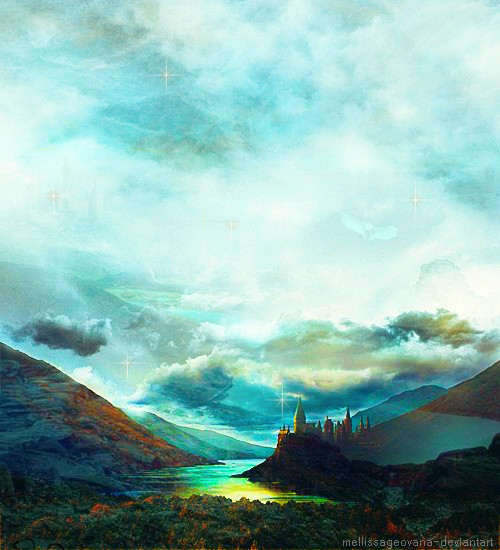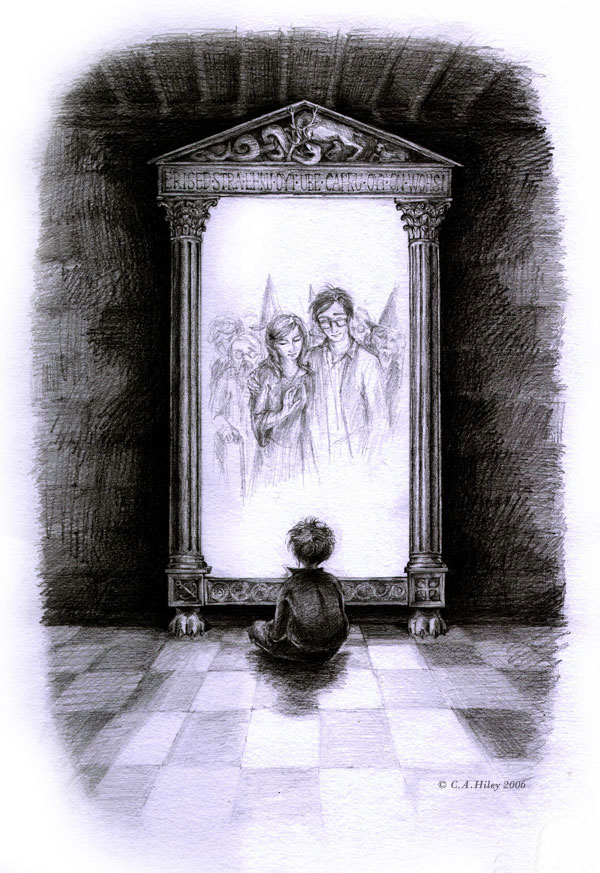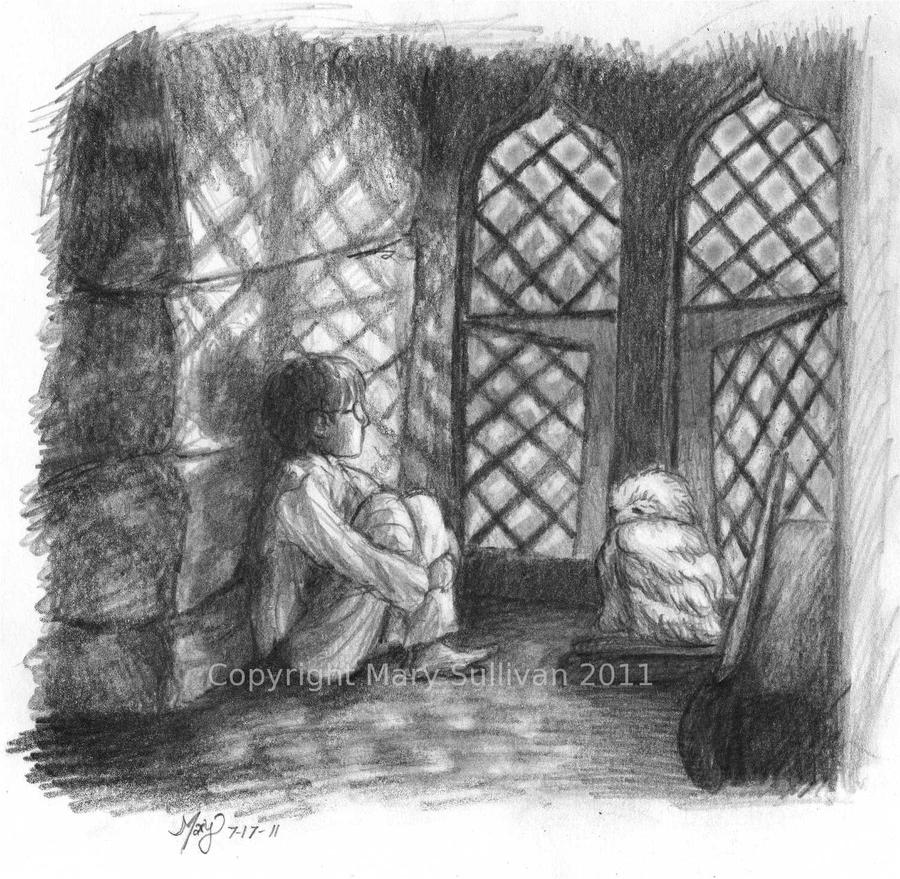Growing up in a relatively sheltered, conservative homeschooled family, my exposure to the world of Harry Potter was relatively minimum. However, I think I should make the disclaimer that my parents never once pronounced that the Harry Potter books were either evil or from the devil. Their main qualm with the series was the inclusion of magic. The dislike I held for them when I was a child stemmed more from what I had heard from my friends, who were largely repeating what they had been told by their parents. I was an avid reader of the fantasy literature by C.S. Lewis and J.R.R. Tolkien, but I had no desire to familiarize myself with J.K. Rowling's stories. Nevertheless, as the series became more and more popular as well as more and more controversial in Christian circles, I made the resolution that one day I would read these books and discern for myself what all of the fuss was about: whether they merited a place on the book shelf or was this just a fad that would eventually collapse into oblivion.
 |
| "Hogwarts is My Home" by Mellissageovana at Deviantart |
 |
| "Erised" by TomScribble at Deviantart |
First of all, the children must be born with the capacity to do magic in order to become a wizard or a witch. This ability is passed on genetically. One does not simply acquire the power to become a witch/wizard. Similar to Gandalf the Grey and the elves in Middle Earth, either you have it or you don't. An average person can't simply study magic and become a magician.
Secondly, magic in Harry Potter, similar to the magic in Narnia and Middle Earth, is neutral -- that is, it can be used for good or for evil, depending on the choice of the person. As a young adult speaking to parents, I would encourage parents to explain the difference between magic in Harry Potter and other fantasy worlds, which is neutral and can be used for good or evil, and magic in reality, which is acquired through demonic powers.
Thirdly, the Harry Potter books are not a "How-to" if one wanted to learn how to do actual magic. One does not shout out Latin phrases and wave a wand about to perform real magic.
The only element that set off warning bells for me at first was the class on divination in HP #3: The Prisoner of Azkaban. However, this turned out to be a false alarm as it quickly becomes apparent that the class is largely a bunch of rubbish, partially confirmed by Dumbledore at the end of the book, and further confirmed in HP #5: The Order of the Phoenix.
The most foreseeable danger I saw was that certain children, when reading Harry Potter, might experience the desire to explore the actual methods of performing magic. This is not going to be the case with every child depending on his or her disposition, but for this reason I believe that a parent's decision to let their child read Harry Potter should be made on a case-by-case basis. (*** PLEASE NOTE: For a more in-depth examination of the magical elements in Harry Potter from a Christian perspective, I highly recommend reading the article posted in this link: http://www.catholic.net/index.php?option=dedestaca&id=3350)
In truth, the magical elements did not concern me so much. On the contrary, what bothered me more was the frequency with which Harry and his friends broke the rules at Hogwarts. In addition, neither Harry nor Ron are model students, while Hermione, the bookworm and over-zealous scholar, is viewed as a freak. These traits might be problematic for young children, in whom you are trying to instill good morals and to whom you are trying to give good role models for them to look up to. However, this is not a problem for older audiences. I discussed this issue with my friend Mary, who pointed out that if Harry had been a goody-goody, he would not have been believable. Older audiences want three dimensional, relatable characters, which Rowling delivers. Many of the experiences and struggles that Harry encounters as we follow him through his years at Hogwarts are similar to our own. In the words of fellow blogger Elenatintil, "We know what it's like to be misunderstood and unable to communicate our worries. ... We 'get' both his desire to follow the rules, and find him more human and more like us when he fails (because we all do). ... We sympathize with his struggles to be understood and appreciated for who he is and accepted as a mature young man. ... And we cheer when he grows into a fine young man and a true hero in every sense of the word, because it fulfills our faith in him and gives us hope for ourselves."
These are some of the cautionary elements to be aware of when introducing the series to impressionable young minds. But now on to the virtues of Harry Potter! First of all (and best of all, really), Rowling's series revolves around the theme of sacrificial love, a theme which is also the foundation of Christianity. At the beginning of the story, Harry's parents give their lives so that their son might live. The theme of sacrifice, particularly in regards to Harry's mother, Lily, returns again and again throughout the series. Eventually, Harry also gains the courage to lay down his life for his friends. Harry stands in stark contrast to the villain of the series, the ambitious evil wizard, Lord Voldemort. At one point in the series, Voldemort's disembodied spirit attempts to possess Harry, but the pain he experiences upon entering Harry's being is so great that he is forced to leave almost at once. Voldemort cannot possess Harry because of the love Harry holds for friends and family.
“Do not pity the dead, Harry. Pity the living, and, above all those who live without love.”
(#7, HP & The Deathly Hallows)
Next to love, I would say that the theme of death is equally prevalent throughout the series. Harry learns how to cope with death in a variety of forms, from the death of his parents to the death of a friend to the deaths of his mentors, to one day facing it himself. These two overarching elements, sacrificial love and death, are timeless, universal themes that all races and all ages can relate to, and this is part of the reason why these stories are beloved by so many audiences. We all are created to love and to be loved, and we will all have to face death someday. In a way, the most important moment in our lives is when we die, and I think Rowling shows that in her own way through Harry. But even more importantly, Rowling shows that love is stronger than death, another theme which Harry Potter has in common with Christianity.
“Books! And cleverness! There are more important things — friendship and bravery.”
(#1, HP & the Philosopher's Stone)
Secondly, Rowling emphasizes the importance of loyalty and friendship throughout the series, particularly amongst Harry, Ron, Hermione, Neville, and Luna. What is even greater is that she also emphasizes the importance of compassion towards one's enemies: particularly in the case of Harry's arch-enemy, Draco Malfoy and his cronies.
“If you want to know what a man's like, take a good look at how he treats his inferiors, not his equals.”
(#4, HP & The Goblet of Fire)
Thirdly, whether she intended this or not, Rowling upholds the importance of the family. One of the best examples of this is found in the Weasley family. Harry grows up without a biological family, or more accurately, Ron Weasley's family becomes his family. One cannot read the Harry Potter novels and not fall in love with the diverse family of gingers known as the Weasleys. Both Mr. and Mrs. Weasley are wizards, as are all six of their children, and together they inhabit the little cottage fondly known as the Burrow. Mr. Weasley works for the ministry of magic while Mrs. Weasley is a stay-at-home mom looking after their five sons and one daughter. Although they are poor in finance, they are rich in love and generosity. Reading about their Christmases together in with Harry and Hermione, or their family dinners before school begins, what reader doesn't want to belong to the Weasley family? Who wouldn't want to chat about muggles with Mr. Weasley, have a tea with Mrs. Weasley, or play Quidditch (a wizarding game) with the Weasley children? The Weasleys stand in sharp contrast to the Malfoys, a snobbish, cold-hearted, family of three, or the Dursleys, Harry's close-minded, cruel aunt and uncle and their piggish son, Dudley.
 |
| "Harry and Hedwig" by Marykyart at Deviantart |
"Every human life is worth the same; and worth saving."
(#7, HP & The Deathly Hallows)
While I did find Rowling's grammar and sentence structure weak at times, I do believe that she is a great storyteller, weaving plots and subplots excellently into an overarching tale of love, loyalty, heroism, and sacrifice. She also excels at creating three-dimensional characters, from the enigmatic Severus Snape to the paternal yet equally mysterious Albus Dumbledore. Her technical skills in writing definitely improve as the series progresses. The fact that the novels get better as the series progresses says something, I think, because generally sequels aren't as good as the first book. (This is usually because the author is pressured to finish quickly in order to keep up with the demands of audiences and publishers). Somehow Rowling is able to avoid this problem! I also appreciate how Rowling avoids sexualizing the story (*cough* Twilight). That doesn't mean the story is without romance, but in an era where the media seems determined to inculcate every nook and cranny with a false portrayal of sexuality, this came as a welcome breath of fresh air!
